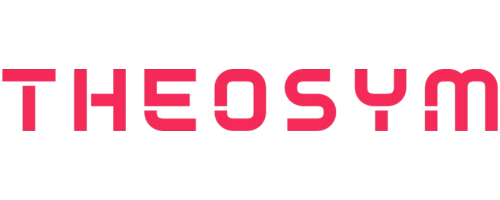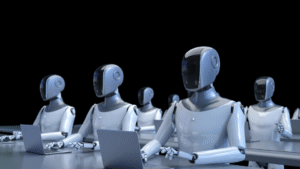Artificial intelligence has been a hot topic for years and continues to be so today. But the more it grows, the more misconceptions surround it. Many of us are left wondering: will AI completely change the workforce, become smarter than humans, or even replace us altogether?
The answers aren’t always what they seem, and that’s where understanding the real possibilities of AI becomes critical for individual users, employees, and business owners.
In this blog, we’re looking into some of the most common myths about AI, setting the record straight, and focusing on what AI can genuinely achieve in today’s market.
Debunking AI Myths: Strengths and Limitations of Artificial Intelligence
Let’s clear the air on some of the biggest myths surrounding AI. While AI is incredibly potent, it’s important to have a realistic understanding of its current capabilities and limitations.
Myth #1: AI will someday replace all jobs
The reality is that AI will automate certain tasks and change the nature of work, but it won’t completely replace human jobs anytime soon. AI excels at repetitive, data-driven tasks, but it still lacks the versatility, creativity, and emotional intelligence that humans bring. We’ll see AI augmenting and enhancing human work, not FULLY replacing it.
AI automates tasks and optimizes workflows, but it’s far from taking over the entire job market. While some jobs can be simplified through automation, others – especially those requiring human creativity, critical thinking, and relationship-building – are here to stay.
Instead of job elimination, you can view AI as job evolution. It helps teams handle cyclical tasks efficiently and allows employees to focus on higher-value work. Ultimately, AI complements the workforce, not takes over it.
Myth #2: AI is ChatGPT
When most people think of AI, they think of ChatGPT, an advanced language model by OpenAI. However, ChatGPT is just one type of AI model among many. AI includes everything from image recognition software and predictive analytics tools to robots on factory floors and recommendation engines in e-commerce.
The field of AI is expansive and includes many specialized tools, each suited to different business needs. So while ChatGPT and similar models are excellent for customer interaction, other AI solutions can help with everything from inventory management to personalized marketing.
Myth #3: AI can think and make decisions just like humans
Sure, modern AI models can perform tasks that may seem humanlike, such as generating human-like text, but they don’t possess true sentience or self-awareness. AI systems are excellent at pattern recognition and optimizing for specific objectives, but they lack the general intelligence, emotional awareness, and higher-order reasoning that humans have.
AI is all about data, not independent thought.
In other words, they don’t “understand” the way a person would. Humans are irreplaceable when it comes to intuitive thinking, ethical judgment, and social intelligence, which AI lacks entirely.
Myth #4: AI does not make mistakes and is infallible
AI systems are technically impressive, but they’re not flawless. In fact, models like ChatGPT readily admit that they may make mistakes or provide inaccurate information. AI is only as good as its data…. Meaning any biases or errors in the input data can lead to mistakes in the output.
Just as humans learn from their mistakes, AI systems can be refined over time through feedback and better data. The key is to monitor AI outputs and to never assume perfection.
Myth #5: AI doesn’t require human intervention
While some AI models can fine-tune or update themselves to a degree, they still fundamentally rely on the data and frameworks provided by human engineers and researchers. Ongoing human supervision, curation, and refinement are vital for making sure AI systems remain reliable and improving their accuracy.
Think of AI as a powerful tool, but one that still requires human oversight to perform at its best. For example, data scientists regularly fine-tune AI models to guarantee they align with business goals and ethical guidelines.
Myth #6: AI systems are inherently complex
AI technology may sound intimidating, but many user-friendly platforms have emerged and made it accessible to people without technical backgrounds. Today, there are numerous “plug-and-play” solutions that allow businesses to adopt AI without needing a team of developers.
For example, AI-powered customer service platforms like Theosym’s Symprise can seamlessly integrate into existing systems. Meanwhile, data visualization tools help businesses interpret AI findings without a tech-heavy setup. With the right tools (+ guidance), AI can be as simple as using any other software.
Myth #7: AI development is only for tech giants and requires huge budgets
AI used to be a luxury for tech giants, but that’s no longer the case. Many affordable AI solutions are now available for small to mid-sized businesses, with subscription-based models that keep costs manageable. Open-source frameworks, cloud-based AI platforms, and low-code/no-code solutions make AI more approachable than ever.
From startups to established businesses, AI is now within reach thanks to the democratization of AI technology. It’s tremendously helping to level the arena and open up opportunities previously reserved for the corporate elites.
Myth #8: Only technical experts can use or benefit from AI
You don’t need a data science degree to use AI. Many AI platforms today are designed with the end-user in mind. They offer easy interfaces, simple integrations, and pre-trained models that can quickly add value to your small business without necessitating advanced technical proficiency.

Even non-technical teams in marketing, customer service, or HR can use AI tools for tasks like customer analysis, engagement tracking, and lead generation. If you can navigate software, you can benefit from AI.
Final Thoughts
The world of AI is evolving rapidly, and it’s understandable that myths and misconceptions abound. However, by separating AI fact from fiction, you can position your business to take full advantage of this transformative technology.
At Theosym, we’re passionate about making AI accessible and impactful for businesses of all sizes. Our team of AI experts can help you navigate the realities of what’s possible today and unlock new opportunities to drive efficiency, enhance customer experiences, and accelerate your growth.
Get in touch with our team to explore AI-powered customer service solutions and more.



